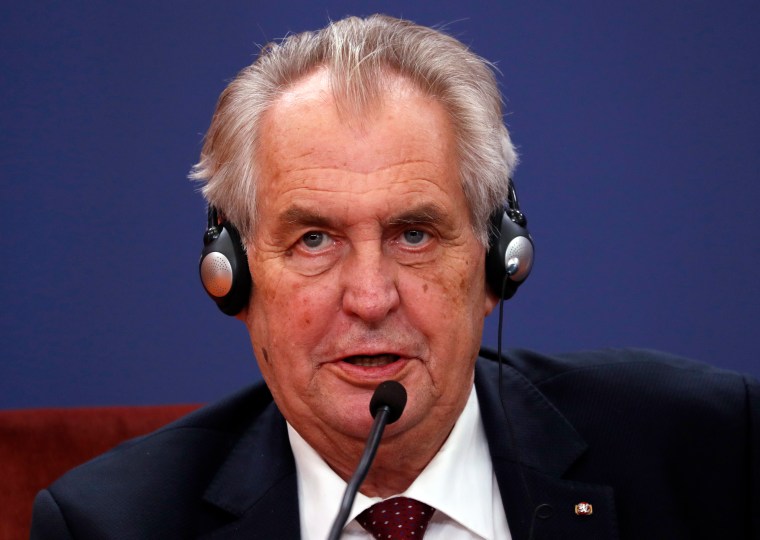On May 21, 2021, the office of Czech President Miloš Zeman issued a statement saying it would no longer provide any information to the weekly Respekt newspaper, news websites Seznam Zprávy and Deník N, and 168 Hodin and Reportéři ČT, two news programs on the public broadcaster Česká Televize.
The statement accused the five outlets of having “consciously disseminated distorted, false and biased information,” of “damaging the good name of the Czech Republic,” and making “flagrant mistakes and inaccuracies” in their reporting. The statement also accused Deník N of spreading “conspiracy theories.”
The statement, titled the “Declaration on Combating Disinformation,” said the president’s office would no longer respond to phone calls or emails from those outlets seeking comment.
In a phone interview with CPJ, Deník N deputy editor-in-chief Lukáš Werner said that the ban was announced following their May 19, 2021, coverage of a Czech intelligence service report about Russia’s alleged involvement in two explosions at ammunition depots in the Czech town of Vrbětice in 2014. On its website, the president’s office cited articles from the other four outlets from 2018 to 2021, which it classified as “misinformation.”
Werner told CPJ that the ban “will not fundamentally change our situation,” saying that the president’s office did not substantively respond to queries from his outlet before the ban.
“In most of the cases, whenever we asked questions, we either have not received any answer or sometimes we received insults or even quotes from the Bible as an answer,” he said.
The editor-in-chief of Respekt, Erik Tabery, similarly told CPJ that the ban “doesn’t change much” because the office “hardly answers the questions,” adding that presidential spokesperson Jiří Ovčáček sent “incomprehensible rhymes instead of answers.”
Marek Wollner, a moderator at Reportéři ČT, called the ban “an appreciation of our work” and said it was “flattering” to be included on the list of banned outlets, according to reports.
After the publication of this article, Jiří Ovčáček, a presidential spokesperson, responded via email to CPJ’s request for comment, saying that outlets in question “are not reduced in their rights” because information from the presidency was publicly available on the office’s website and social media.
Ovčáček accused the outlets of disseminating “disinformation such as hate speech, fake news, ageism and body shaming” and said that the presidency had been “forced to respond to violations of professional rules by these media.”
[Editor’s note: This article has been updated to include a response from presidential spokesperson Jiří Ovčáček.]
